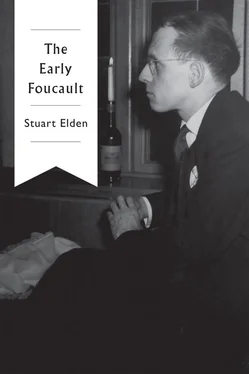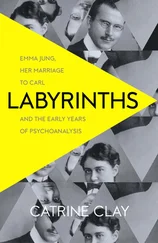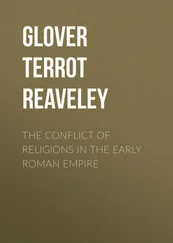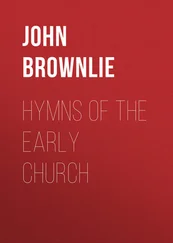1 ...6 7 8 10 11 12 ...18 The resolution for this, Foucault argues, is the ‘new phenomenological dimension’, that of ‘being-for-us [ être-pour-nous ]’, which is not so much the unity of ‘being-in-itself’ and ‘being-for-itself’ as the consciousness of the philosopher. 84The idea of the truth in itself is problematic, insufficient, because it does not have a relation to a conscience, and because, ‘thought by the philosopher, the in-itself is no longer in-itself’. ‘Being-for-us’ avoids this problem, because it ‘is a mediation and makes the in-itself effective’; and ‘far from disappearing at the level of absolute knowledge, the for-us is what is realized in its totality at the level of absolute knowledge’. 85Finally, Foucault explores how being-for-us and being in history are related. For Descartes, Kant and Fichte, in different ways, the thinker, the object and truth are intertwined. With Hegel, the philosopher is able to transcend this, because there is a transcendental subject, absolute knowledge, which constitutes history, and with which they can identify. 86
Foucault devotes some space in his final chapter to the young Marx’s critique of Hegel, 87but it is in the conclusion that the full stakes of his engagement become clear. 88It reiterates some general themes, and contextualizes the writing of the work in 1806 as a response to Kant and Fichte. 89This context is entirely intellectual: Foucault does not mention the famous connection to the Battle of Jena and Napoleon’s entry into the town in October 1806, just as Hegel was completing the work. 90Foucault suggests that the Phenomenology is ‘neither preface nor part of the Hegelian system’; but that it is ‘the search for what makes possible the totality of a system of thought that wants to present itself as a science. It is the process that will allow a thought to be systematic without contradiction.’ 91Indeed, he claims that the work as a whole ‘can be interpreted as a phenomenology of philosophical consciousness, as a description of this step towards integral knowledge, if at least we can accept the interpretation of absolute knowledge that we have attempted’. 92
A brief discussion of Marx, and a contrast of Hegel with Husserl’s Ideas in the conclusion, 93are the extent of his explicit engagement with the literature after Hegel, though Foucault is clearly indebted to Hyppolite’s interpretation. The debates with which Hegel was involved are outlined, but for the most part this is an internal examination of Hegel’s work, largely but not exclusively through the Phenomenology . Foucault also makes reference to other works by Hegel including the Logic, Elements of the Philosophy of Right and the Encyclopaedia ; his lecture courses; 94and the earlier writings which predate the Phenomenology , including theological texts from Hegel’s years in Berne and Frankfurt and writings from the Jena period. 95Except for Hyppolite’s translation of the Phenomenology , Foucault usually makes reference to the Leipzig edition of the Sämtliche Werke , with some other references for early works. 96Secondary literature draws on a wide range in French, German and English, notably including works by Hyppolite and Wahl, 97but also studies by Georg Lukács, Karl Löwith and Benedetto Croce. 98For phenomenology beyond Hegel himself, Foucault references Husserl’s Logical Investigations, Cartesian Meditations , and Experience and Judgment , as well as articles by Eugen Fink, Lévinas and Sartre. 99The reading is certainly extensive, though the referencing, at least in the draft preserved in the files, is somewhat slapdash. References are frequently incomplete or wrong; Kierkegaard’s name is misspelt as Kierkegaared, Kojève as Kogève, Husserl’s Erfahrung und Urteil as Erpatirung und Urteil , and even, astonishingly, his thesis director twice misspelt as ‘Hippolite’. These errors indicate that another hand was responsible for the typing of the text, and had to contend with Foucault’s often difficult handwriting.
It is an apprentice work, certainly, and one that bears strong marks of its supervisor. Among other things it is notable that Foucault does not discuss the master/slave dialectic, central to Kojève’s reading of the text, which was to become so influential following him. It is an important moment in Foucault’s intellectual development, and an astonishing piece of work for someone who was only twenty-two when it was completed in June 1949. 100While Foucault does not pursue the type of approach here in subsequent work, except perhaps the introduction to Kant’s Anthropology , there are some similarities to topics of later interest. In particular, the (contingent) nature of the transcendental and its conditions of possibility are here always historical, something with which Foucault will continue to be concerned in later work. Equally, the stress on the question of knowledge would be central to his work of the 1960s, culminating in The Archaeology of Knowledge , and continues into his work of the 1970s with the notion of power-knowledge. The reading undertaken finds its most immediate payoff in the lecture courses he would give in Paris and Lille in the first half of the 1950s, discussed in Chapter 2. This is especially so for the work on philosophical anthropology, which engages with German thought in detail, but also for his interest in the development of phenomenology in Husserl. However, the text is also notable for the complete absence of reference to Heidegger and Nietzsche, two key figures for his later intellectual development (see Chapter 5). 101
Alongside this work on philosophy, Foucault was also studying psychology. Foucault’s formal teachers included Lagache, who established the diploma in psychology at the Sorbonne and with Jacques Lacan formed the breakaway Société française de psychanalyse in 1953. 102Lacan pays tribute to Lagache’s work in Écrits , devoting a whole essay to him. 103Foucault also attended classes by the neurologist and psychiatrist Ajuriaguerra who was in 1975 elected to a chair at the Collège de France. 104Of course, not all the influences came from the classroom: Foucault was a voracious reader too. Georges Politzer’s 1928 work, Critique of the Foundations of Psychology , was certainly important. 105Politzer was a PCF theorist, executed by the Gestapo in 1942, who made one of the few PCF contributions to psychological theory. 106In the early 1920s Politzer was one of the members of the Philosophies group of whom Georges Friedmann, Norbert Guterman and Lefebvre were also members. 107Politzer translated Friedrich Schelling’s La Liberté humaine , to which Lefebvre contributed a long introduction – one of his first major publications – in 1926. 108Politzer is also known for La Crise de la psychologie contemporaine , 109and was influential to Merleau-Ponty, Lacan and Laplanche. 110
Politzer is critical of recent developments in psychology, with an explicit focus on Freud and The Interpretation of Dreams . His key innovation is to critique the distinction between manifest and latent contents of mental life, 111and to propose what he calls ‘concrete psychology’. For Politzer there is only one field of consciousness, and he therefore is strongly critical of Freud’s turn to abstraction, his metapsychology, especially in the light of his earlier promise of a more concrete work. Metapsychology detached psychology from empirical evidence, and Politzer is too much of a phenomenologist for that to be valid. ‘ Metapsychology has lived its life, and the history of psychology is beginning.’ 112Politzer is also critical of the scientific pretensions of modern psychology: ‘We need to understand that psychologists are scientists like evangelized wild tribes are Christian. ’ 113The Critique was intended to begin a three-volume study, Matériaux pour la Critique des fondements de psychologie , 114with ‘another volume on Gestalt theory, with a chapter on phenomenology’, and a third on ‘behaviourism and its different forms with a chapter on applied psychology’. 115While this work was cut short by his execution, it would be developed by many who followed his inspiration.
Читать дальше










